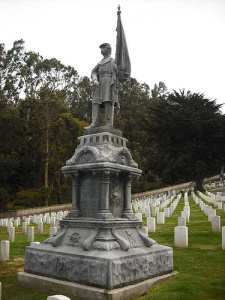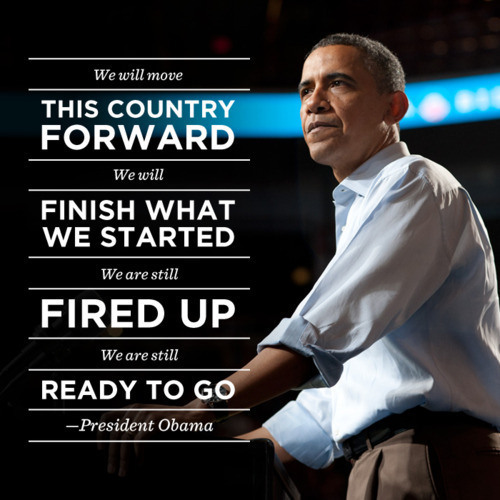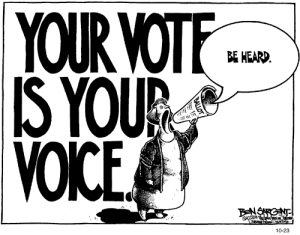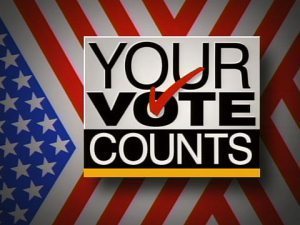Alon Shalev's Blog, page 27
November 14, 2012
Campaign Finance Reform Now!
If I heard correctly, those advocating fiscal responsibility wasted $6 billion on ridiculous adverts, flyers that are trashing our streets and that the tax payers now needs to clear up, and various other shallow tactics. Living in California, I have been spared the assault that took place in the swing states. I spend a lot of time with You Tube in the background. Either the Prop adverts have been few, or I am not distinguishing them from the epic lyrics of Nightwish and Nickelback.
But this past week, I have been exposed to a number of campaign ads and they are, to be honest, demeaning, embarrassing, and insulting. The majority of Americans will vote for the same party candidates because of class, religion, or any of a number of acceptable reasons. The undecided (and I remain unconvinced that they really are) are either apathetic and therefore not listening to ads: or genuine thinking individuals who do not deserve to be exposed to such drivel.
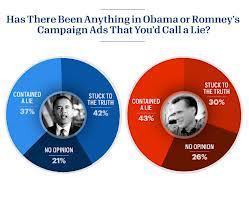 Now is the time to reform electoral finance while we remember how bad it is. Two models come to mind and, I admit, it says a lot about the writer that his sources are the NBA and English soccer.
Now is the time to reform electoral finance while we remember how bad it is. Two models come to mind and, I admit, it says a lot about the writer that his sources are the NBA and English soccer.
In the English Premier League, once the most competitive in the world, two soccer clubs have been bought by billionaires who have pumped money into the clubs, allowing them to outbid any other club for players and pay two or three times the salary. Naturally, they have assembled teams that no one else can compete with. In fact, their reserve teams could beat most opponents. This fine game, the bastion of civilization, has been reduced to market forces, and has lost its soul.
Ironically, in a clear sign of socialist America, the NBA allows teams to spend a salary cap. If they choose to spend it on 2-3 superstars or create a ‘deep bench’ (many good players), that is for them to decide.
Each candidate should be given a clear amount of dollars they can spend that can enable them to have balloons at their conventions and launch a limited media campaign. The rest of their efforts should focus on serious debate, Q&A, honest information dissemination, and speeches.
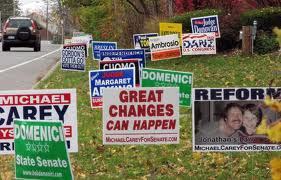 Money should be provided through taxes: no candidate should be in a position to be bought by big business, corporations, trade unions, or individuals. PACs should be sent packing.
Money should be provided through taxes: no candidate should be in a position to be bought by big business, corporations, trade unions, or individuals. PACs should be sent packing.
It is too easy to avoid serious debate and open scrutiny of a candidate’s policies, to be distracted by slick unaccountable ads. Many thinking Americans were simply worn down by the sheer barrage and noise.
Let’s make the change now. 2016 is just around the corner.
——————————————————————————————————
Alon Shalev is the author of The Accidental Activist and A Gardener’s Tale. His next novel, Unwanted Heroes, is due out in early 2013. He is the Executive Director of the San Francisco Hillel Jewish Student Center, a non-profit that provides spiritual and social justice opportunities to Jewish students in the Bay Area. More on Alon Shalev at http://www.alonshalev.com and on Twitter (@alonshalevsf).


November 13, 2012
Successes and an Important Failure in the 2012 Election- Tom Rossi
I’m mostly happy about the results of the recent election. Several of the propositions I supported passed, and a few Senate races went very well, including the big one – Elizabeth Warren defeating Scott Brown in Massachusetts. And yes, I’m quite happy that President Obama was re-elected, despite his shortcomings in his first term. I was willing to risk his losing in order to stand up for progressivism, but that doesn’t mean I wanted him to lose.
But the most important issue in the election, to me, was California Proposition 37. Prop 37 simply said that foods with genetically modified ingredients should be labelled. And it’s supporters managed to snatch defeat from the jaws of victory.
There’s plenty of blame to dole out to prop 37′s opponents – Monsanto Corporation and it’s allies. They stretched the truth, they made up some stuff, heck… they just lied. But I point the biggest finger back at the promoters of prop 37 themselves. They blew it, and I’m ticked off about it. This was important.
The first round of ads for prop 37 were pretty good. They made the point well that we should be informed as to the background and makeup of our food. After watching them, I knew that the opponents were taking their time to design an attack. They came right on time, with the expected techniques on display: Say it’s complicated and bureaucratic, say it’s unnecessary, say it’s expensive, and say it hurts somebody charismatic – firemen, our “troops,” or, in this case, farmers.
An early Right to Know ad:
The attacks on prop 37, though they were lies, were somewhat specific. And you can’t answer a specific attack, regardless of its lack of veracity, with a “Target style” commercial with women dancing around in red and white polka dots, carrying joy-inducing shopping bags. But that’s exactly what was done.
Childish fantasy response video:
When the attack ads came out, I waited. I waited for the refutation of the attacks by the good guys. I waited for our own people in doctor’s lab coats. I waited for scientists standing in front of test tubes – lots of scientists. They never came.
Instead, in answer to: “Prop 37 will cost consumers millions,” we got: “It doesn’t cost a dime.” In answer to: “Prop 37 is illogical in its labeling requirements,” we got: “It’s simple.” Piss poor. The response would certainly seemed like fluffy B.S. to me, had I not already known a lot about the issue.
When I saw the pathetic response by Right to Know, it was too late. They had timed their response correctly, saving their second round of advertizing spending for the final week, but it was too weak.
This chart from Mother Jones show what happened to the popular support for prop 37 once the opposition ads hit:
And now, because this defeat shows a lack of a strong movement for honesty in food labeling, President Obama will most likely put the issue on the back burner indefinitely. This failure has set the semi-existent “food movement” back years. I just hope lessons were learned here.
The same “Target style” technique was attempted by the advocated of prop 38, the alternative to Governor Brown’s tax bill – prop 30. The prop 38 ads had angelic little voices saying: “I’m a cute-voiced little school kid and here’s what I want you grown ups to do to take care of us – vote yes on prop 38, yay!” That one went down like the Hindenburg.
Our side shouldn’t insult the voters’ intelligence. Let the other side do that while we gain real respect by showing that we’re unafraid to tell the whole truth. This is a movement that depends on people understanding somewhat complex ideas and looking ten years or more into the future. Let’s not pretend we’re joyfully going shopping.
Of course, some well-done humor can’t hurt…
Prop 37 spoof ad video:
-Tom Rossi
___________________________________________________________________________
Tom Rossi is a commentator on politics and social issues. He is a Ph.D. student in International Sustainable Development, concentrating in natural resource and economic policy. Tom greatly enjoys a hearty debate, especially over a hearty pint of Guinness.
___________________________________________________________________________


November 11, 2012
Veteran’s Day – An Excerpt from Unwanted Heroes
Unwanted Heroes will be released in the new year. The galley proofs are back in the hands of the publisher and I have just seen a first rendition of the cover.
Unwanted Heroes brings together an old, battle weary Chinese American war vet and an idealistic and pretentious young Englishmen, who share a love for San Francisco, coffee and wine. They soon discover they share even more when repressed memories bring them together in a gripping climax, finding in each other, an unlikely ally to free themselves from the tragic past that binds them both.
In recognition of Veteran’s Day, I would like to share a scene with you. Mr. van Ness is Will’s (the protagonist) girlfriend’s father.
—————–
Mr. van Ness downs the rest of his cognac in one gulp and stands up.
“I want to show you something, Will. Come.”
We leave the country club in his black, shiny Mercedes and drive about twenty minutes to the military cemetery in the Presidio. There are stunning views of the Golden Gate Bridge, and I stare silently as we pass through the tall stone and iron gates. The cemetery, like most of the city, is built on a hill. Rows of white tombstones stand in perfect, military symmetry, each defined by straight grass borders, like a white and green chessboard. A huge flag blows in the wind as I follow Jane’s father to a section of graves.
“What do you think the average soldier dreads when he goes off to war?” He asks without looking back at me.
I think for the moment. “Death, captivity, maybe never seeing his loved ones again?”
Mr. van Ness nods. “That’s about it. What about an officer?”
“The same?”
“Yes, but there’s something else. The officers see the young, fresh faces when they join the unit. Sometimes, if we’re embarking together, we see their parents, wives, girlfriends, and children. They hug and cry, while the family steals surreptitious glances at the officer, silently pleading: bring my boy home, my lover, my father.
“And a shiver courses through you. You are not God, probably not much of a soldier either. You know you cannot protect them, but still you swear a silent oath; to try and bring them back alive, as many of them as you can. Fuck the war, the politics, the drive to serve your country. All you want is to bring your boys back. You’d rather face a thousand of the enemy than one of these parents, wives or children at the funeral, or remembrance service.”
We stop by a tombstone and he crouches down, tenderly cleaning some dirt that has gathered there. I crouch with him as he takes a deep breath.
“The last time my wife entered my den was about fifteen years ago, Will. She shouldn’t have, but her motives were no doubt innocent. She found a small black notebook, almost full. I had written a list of names, mainly women. The names reappeared regularly and there was a column with dates and another with dollar amounts. She found a checkbook from a bank she was sure we didn’t use.
“That evening she confronted me. We didn’t hold secrets from each other, financial or otherwise. Who were these women? Ex-lovers? Illegitimate kids? I roared back that it was none of her damn business, how dare she enter my den and I yelled other absurdities. We’d never raised our voices to each other like that and have never since. Totally out of control, total rage.”
He points to the tombstone.
“My first sergeant, Pete O’Reilly. He died in my arms. The last words he heard were an oath from my lips to take care of his two young kids. Their mother received monthly checks from the bank, anonymous. When his oldest daughter was eighteen, she received a letter from the bank about a trust fund for her and her brother to pay for university tuition. The youngest graduated from Stanford a few years back.”
We move on to another grave. “His family’s all devout Catholics. I swore that they’d never know how he died. He’s buried here as a hero, and so it’ll remain.”
At another grave, he seems lost in thought, buried memories resurfacing. Then at length he turns to me. “Jane doesn’t know this, neither does her mother.” I nod, understanding the unspoken and he continues. “I worked in intelligence as well. I oversaw the recruitment and training of a spy network, of sort. Nothing glamorous. We gave the alcoholics and junkies money for booze and drugs.
“They gave us information, basic stuff like troop movement, nothing too significant. Crumbs. They were the dregs of their society and they knew little. But sometimes they knew enough to prevent some of our troops dying. If we thought we could use methods and intimidation to get more out of them, we never hesitated. If it saved one more life…
“I didn’t care, I could justify it. Not for the great United States, or for freedom and democracy, but to get my boys home alive. If this piece of shit’s confession could save just one of my boys, let him scream.”
He took a moment to compose himself. “They were handled by Asians, usually Asian-Americans recruited over here. These people had it hard. They may have nothing to do with Vietnam, born thousands of miles away, in a different culture, a different language. They were doing their job as loyal Americans, no different from the rest of us.
“But they were seen as different. Yellow skin, slit eyes aroused all the wild fears and prejudices that permeated the white and black soldiers. They largely hung out together and felt betrayed.
“Then we returned home. To some we were heroes, but many felt uneasy, as they’d heard of the horrors we’d inflicted. For the Asian-American soldiers, it was twice as bad. In civilian clothes, they were just another immigrant, just another who looked like the enemy. They received no honor, no respect from their peers. Sometimes they were even rejected by their own.”
He pauses again. I watch his warm breath escape as he exhales into the chilly air.
“There are two of these men still alive, physically at least. They’re both loners, pariahs. They’ve never held down jobs, never married. They wander the streets, allowing themselves to remember only enough to ensure they return to a hostel of sorts that feeds them and gives them beds. They are luckier than the homeless you talk about, Will. Their officer turned out to be a rich bastard who cares. Their tabs at the hostel are taken care of.”
There is silence and we stand up stiffly, both staring around. I search for something to say and put my hand on his shoulder. “You’re a good man, James, a generous man.”
He turns sharply and looks at me incredulously. His voice becomes sharp and loud. “I don’t do it for them! I do it for me! I do it so that I can live, so that I can continue. I do it to keep away the nightmares, to prevent the faces of widows and orphans staring at me at every turn.”
He begins to walk towards the car.
“You’re still a good man, James.” I shout after him, my voice shaking with emotion. He turns to face me. My arm sweeps in the cemetery and, with considerable effort, I steady my voice. “They all know who you are and what you did. They still think you’re a fucking hero. So do I, sir, even if I can’t understand it all.”
He stares at me for what feels like hours and I walk slowly towards him. He is breathing heavily; I see this even though the winter coat he wears. When he speaks, his voice is quiet, but steely.
“Find your boss, son. Find him and help him if you can: his brother too, if the poor bastard’s still alive.”
—————————————-————————————————————–
Alon Shalev is the author of The Accidental Activist and A Gardener’s Tale. His next novel, Unwanted Heroes, is due out in early 2013. He is the Executive Director of the
Veteran’s Day: Excerpt from Unwanted Heroes
Unwanted Heroes will be released in the new year. The galley proofs are back in the hands of the publisher and I have just seen a first rendition of the cover.
Unwanted Heroes brings together an old, battle weary Chinese American war vet and an idealistic and pretentious young Englishmen, who share a love for San Francisco, coffee and wine. They soon discover they share even more when repressed memories bring them together in a gripping climax, finding in each other, an unlikely ally to free themselves from the tragic past that binds them both.
In recognition of Veteran’s Day, I would like to share a scene with you. Mr. van Ness is Will’s (the protagonist) girlfriend’s father.
—————–
Mr. van Ness downs the rest of his cognac in one gulp and stands up.
“I want to show you something, Will. Come.”
We leave the country club in his black, shiny Mercedes and drive about twenty minutes to the military cemetery in the Presidio. There are stunning views of the Golden Gate Bridge, and I stare silently as we pass through the tall stone and iron gates. The cemetery, like most of the city, is built on a hill. Rows of white tombstones stand in perfect, military symmetry, each defined by straight grass borders, like a white and green chessboard. A huge flag blows in the wind as I follow Jane’s father to a section of graves.
“What do you think the average soldier dreads when he goes off to war?” He asks without looking back at me.
I think for the moment. “Death, captivity, maybe never seeing his loved ones again?”
Mr. van Ness nods. “That’s about it. What about an officer?”
“The same?”
“Yes, but there’s something else. The officers see the young, fresh faces when they join the unit. Sometimes, if we’re embarking together, we see their parents, wives, girlfriends, and children. They hug and cry, while the family steals surreptitious glances at the officer, silently pleading: bring my boy home, my lover, my father.
“And a shiver courses through you. You are not God, probably not much of a soldier either. You know you cannot protect them, but still you swear a silent oath; to try and bring them back alive, as many of them as you can. Fuck the war, the politics, the drive to serve your country. All you want is to bring your boys back. You’d rather face a thousand of the enemy than one of these parents, wives or children at the funeral, or remembrance service.”
We stop by a tombstone and he crouches down, tenderly cleaning some dirt that has gathered there. I crouch with him as he takes a deep breath.
“The last time my wife entered my den was about fifteen years ago, Will. She shouldn’t have, but her motives were no doubt innocent. She found a small black notebook, almost full. I had written a list of names, mainly women. The names reappeared regularly and there was a column with dates and another with dollar amounts. She found a checkbook from a bank she was sure we didn’t use.
“That evening she confronted me. We didn’t hold secrets from each other, financial or otherwise. Who were these women? Ex-lovers? Illegitimate kids? I roared back that it was none of her damn business, how dare she enter my den and I yelled other absurdities. We’d never raised our voices to each other like that and have never since. Totally out of control, total rage.”
He points to the tombstone.
“My first sergeant, Pete O’Reilly. He died in my arms. The last words he heard were an oath from my lips to take care of his two young kids. Their mother received monthly checks from the bank, anonymous. When his oldest daughter was eighteen, she received a letter from the bank about a trust fund for her and her brother to pay for university tuition. The youngest graduated from Stanford a few years back.”
We move on to another grave. “His family’s all devout Catholics. I swore that they’d never know how he died. He’s buried here as a hero, and so it’ll remain.”
At another grave, he seems lost in thought, buried memories resurfacing. Then at length he turns to me. “Jane doesn’t know this, neither does her mother.” I nod, understanding the unspoken and he continues. “I worked in intelligence as well. I oversaw the recruitment and training of a spy network, of sort. Nothing glamorous. We gave the alcoholics and junkies money for booze and drugs.
“They gave us information, basic stuff like troop movement, nothing too significant. Crumbs. They were the dregs of their society and they knew little. But sometimes they knew enough to prevent some of our troops dying. If we thought we could use methods and intimidation to get more out of them, we never hesitated. If it saved one more life…
“I didn’t care, I could justify it. Not for the great United States, or for freedom and democracy, but to get my boys home alive. If this piece of shit’s confession could save just one of my boys, let him scream.”
He took a moment to compose himself. “They were handled by Asians, usually Asian-Americans recruited over here. These people had it hard. They may have nothing to do with Vietnam, born thousands of miles away, in a different culture, a different language. They were doing their job as loyal Americans, no different from the rest of us.
“But they were seen as different. Yellow skin, slit eyes aroused all the wild fears and prejudices that permeated the white and black soldiers. They largely hung out together and felt betrayed.
“Then we returned home. To some we were heroes, but many felt uneasy, as they’d heard of the horrors we’d inflicted. For the Asian-American soldiers, it was twice as bad. In civilian clothes, they were just another immigrant, just another who looked like the enemy. They received no honor, no respect from their peers. Sometimes they were even rejected by their own.”
He pauses again. I watch his warm breath escape as he exhales into the chilly air.
“There are two of these men still alive, physically at least. They’re both loners, pariahs. They’ve never held down jobs, never married. They wander the streets, allowing themselves to remember only enough to ensure they return to a hostel of sorts that feeds them and gives them beds. They are luckier than the homeless you talk about, Will. Their officer turned out to be a rich bastard who cares. Their tabs at the hostel are taken care of.”
There is silence and we stand up stiffly, both staring around. I search for something to say and put my hand on his shoulder. “You’re a good man, James, a generous man.”
He turns sharply and looks at me incredulously. His voice becomes sharp and loud. “I don’t do it for them! I do it for me! I do it so that I can live, so that I can continue. I do it to keep away the nightmares, to prevent the faces of widows and orphans staring at me at every turn.”
He begins to walk towards the car.
“You’re still a good man, James.” I shout after him, my voice shaking with emotion. He turns to face me. My arm sweeps in the cemetery and, with considerable effort, I steady my voice. “They all know who you are and what you did. They still think you’re a fucking hero. So do I, sir, even if I can’t understand it all.”
He stares at me for what feels like hours and I walk slowly towards him. He is breathing heavily; I see this even though the winter coat he wears. When he speaks, his voice is quiet, but steely.
“Find your boss, son. Find him and help him if you can: his brother too, if the poor bastard’s still alive.”
—————————————-————————————————————–
Alon Shalev is the author of The Accidental Activist and A Gardener’s Tale. His next novel, Unwanted Heroes, is due out in early 2013. He is the Executive Director of the
November 9, 2012
Reacquainting With Old Friends
Last month, Three Clover Press, sent me the galley proofs for Unwanted Heroes. I was instructed to carefully read through the manuscript and pick out any light changes: spelling, grammar, word choice, etc.
Reading a Galley Proof is like preparing your kid for college (admittedly, I haven’t done this, but I do work with university students – bear with me). It is a last chance to make sure everything is as you want it to be before you send them out into the big, wide world. You want to make sure they have everything they need, are prepared for every scenario they might face. It is the same with a book – a last chance to get everything right.
 Well over a year has passed since I last read through the manuscript. The novel was written a couple of years before that and since then, I have written four other manuscripts.
Well over a year has passed since I last read through the manuscript. The novel was written a couple of years before that and since then, I have written four other manuscripts.
I have moved on, right? Wrong.
Over the next two weeks, I did not expect to feel the emotional rollercoaster that played out. Of course, I remembered the plot. There are sensitive scenes that I have read, edited, reread, and reedited, a dozen times … but that was back then.
So why am I getting teary-eyed as I read them again now? Why do I find myself rooting for the characters that I got so close to back then? Admittedly, my relationship with these characters continued into the sequel that I wrote last year, and into the notes I have made for the third in the series both of which are also emotional roller coasters.
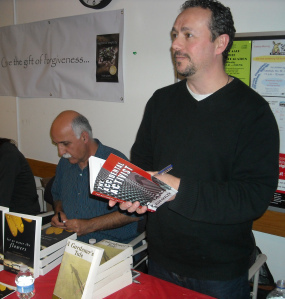 When I am writing a novel, I become very close to the characters. They accompany me on my commute, in the gym, and I often dream about them at night. I worry for them, get frustrated with them, and just between us, I often argue with them.
When I am writing a novel, I become very close to the characters. They accompany me on my commute, in the gym, and I often dream about them at night. I worry for them, get frustrated with them, and just between us, I often argue with them.
I would like to tell you that I have control of these characters. What I type onto the computer decides their actions, attitudes, and destiny. But they, and I, know this is only partially true. They are part of the creation, part of the process, and an integral part in how the plot plays out.
Many writers claim that the plot defines the characters. That has always puzzled me and, I suspect, leads to either shallow characters or obvious stereotypes. The reader invests in characters. Given we all crave a twist or two at the end of the book, it is for the protagonist that we root, and our commitment to him/her is what sends us scurrying to buy the next book in the series.
This is why reading a galley proof is so much more than scanning for errors or word choices. It is reacquaintance with old friends: people with whom we shared so much: people with whom we laughed, loved, and cried. My characters stepped outside their comfort zone to try and create a better world, and for whom we, the reader and author, bear witness.
It is so much more than scanning pages of words.
——————————————————————————————————
Alon Shalev is the author of The Accidental Activist and A Gardener’s Tale. His next novel, Unwanted Heroes, is due out in early 2013. He is the Executive Director of the San Francisco Hillel Jewish Student Center, a non-profit that provides spiritual and social justice opportunities to Jewish students in the Bay Area. More on Alon Shalev at http://www.alonshalev.com and on Twitter (@alonshalevsf).

November 8, 2012
Post-Election Thoughts – Roger Ingalls
What could have been a very bummer election turned out to be pretty awesome. There were a few negatives but the dramatic leftward movement on some key issues caught me totally by surprise.
Before we hit the good stuff let’s get the minor bad things out of the way:
1) California Prop 30 passed which increases the state sales tax and places a higher tax burden on the upper wage earners. This money is supposed to funnel to schools. I’m all for educating the kids but giving more money to the hooligans and cronies that populate the education system is sinful. These extortionists need pink slips, not greenbacks. Fix the dysfunctional system before pouring more money into it.
2) Abolishment of the death penalty failed (Prop 34). A few years ago I wouldn’t have cared about the death penalty but hearing the news about the number of innocent people executed by the state of Texas opened my eyes. Governor Perry faced with overwhelming evidence of innocence; still allow executions to go ahead because he didn’t want to appear soft on crime. His self-image was more important than the life of another human. I can see this happening elsewhere, like California, given the current state of politics. If there is a possibility that an innocent person could pay the ultimate price than the death penalty must be abolished.
Onto the good stuff:
1) President Obama was re-elected. I’m far from happy with the President’s performance but the alternative is unthinkable. In addition, it proves that his initial election was not a fluke and we are making racial progress.
2) After years of defeats in more than 30 states, pro-gay marriage initiatives finally passed in 2012. Same-sex marriage passed in Maryland, Maine and possibly Washington pending a more detailed vote count. Also, Minnesota voted down a ban on gay marriage. Progress!
3) California updated its draconian three strikes law. Now, the three strikes law can only impose a life sentence when the new felony conviction is serious or violent. Prop 36 also allows re-sentencing for previously closed cases along with a few other provisions. It’s socially fair and will save the state a lot of money.
4) Colorado and Washington legalized the recreational use of cannabis. Finally, brave citizens of these two states said “enough” to the conservative agenda that consistently criminalizes human behavior. A plant that’s been used by humanity for 10,000 years was made illegal for dubious reasons approximately forty years ago. How the Federal government attacks CO and WA will be interesting. Big money from the pharmaceutical and prison industries pay politicians to protect their interest so the Fed may crack down hard on the states. The Obama administration has hit states hard on medical marijuana even though he campaigned otherwise in 2008, basically he lied to the younger generation to get their vote. Perhaps now that re-election worries are no longer warranted, he will honor his original commitment.
5) Many younger voters took a liberal stance again in 2012, as they did in 2008. Also, the thirty-somethingers voted for the Democratic candidate for a third straight presidential election. Once a citizen votes two or three consecutive time for the same party, they usually vote that way for the rest of their life. This gives hope to the possibility that a future progressive movement can undo all the damage caused by Republicans over the past thirty years.
6) Women, in huge numbers, voted to re-elect President Obama. This should send a strong message to the Republican Party that their attempts to keep women barefoot and pregnant in the kitchen will not work. And certainly the party’s politicians that make statements like “legitimate or justifiable rape” need to be removed from office.
2012, positively progressive!

November 7, 2012
Four More Years…Together
I realize this should be an emotional post but the truth is I’m exhausted: not burnt out, but simply running on empty. Given the prices of gas, that might not be a bad thing.
President Obama won. The Democratic agenda won.
 But the reality is that we carried it with a little more than half the vote.
But the reality is that we carried it with a little more than half the vote.
America is slowly digging itself out of a deep hole. It is a hole that has taken its toll on 99% of us, many of whom did not vote for the President. The reality is that we must continue to dig ourselves out as one nation. There is not much of a margin of error, and we need to do it together.
Many of the more extreme candidates lost and I believe this is important. We need a government that will work with the President and not against him. To do this, we need the support of those rational and patriotic Republicans, who did not vote for Barack Obama.
As such, it is not the time to be too self-congratulatory. It is not right to run the victory lap when there is still high unemployment, soldiers abroad, veterans suffering, rising homelessness, and an over-burdened education system.
It is time to reach out to our neighbors and harness the energy and commitment by activists of both sides, so that we can move this country forward together. Four more years yes…but together.
——————————————————————————————————
Alon Shalev is the author of The Accidental Activist and A Gardener’s Tale. His next novel, Unwanted Heroes, is due out in early 2013. He is the Executive Director of the San Francisco Hillel Jewish Student Center, a non-profit that provides spiritual and social justice opportunities to Jewish students in the Bay Area. More on Alon Shalev at http://www.alonshalev.com and on Twitter (@alonshalevsf).

November 6, 2012
Get Off Your Butt and Vote!! – Tom Rossi
Today is election day! My message is simple…
Get to your polling place and vote!!!
I know I’ve come off as somewhat cynical on the subject of the presidential election. Well, it’s not a choice between a giant douche and a turd sandwich, as was once suggested by the loveable little eight-year-olds on South Park. It’s more a choice between a giant douche (with gray sideburns) and a liver sandwich. Some people like liver and it’s probably sort of good for you, but let’s face it, it’s not too many people’s first choice.
But forget about the presidential race for a moment. Most of my readers are here in California, and if a few hundred Californians actually took my advice and wrote in Dennis Kucinich or Elizabeth Warren for president, nothing at all would change. California would still be a blue state and its electoral votes would all go to President Obama anyway. And besides, for my plan to work, people have to make it known that they want a more progressive government. If you just don’t vote, nothing will be accomplished.
Mitt Romney video:
No matter what state you are in, there are other races where your vote might make a difference. Here in California, we have several propositions on the ballot, some of which are very important (like prop 37 – YES!!!) and some of these are pretty much a toss-up as to whether or not they will pass, according to the polls.
In addition, in many states, important Senate and Representative races are hanging by a thread. There are actually some politicians out there that will put their shoulders against the gargantuan, immoveable mound of stone that is our beloved corporatocracy (and sometimes kakistocracy) and try to derail this train to the heart of dystopia.
So, NO EXCUSES! Your voices are important! I once saw an important bill in Colorado defeated something like 4,500 to 4,350. It was one of those bills that progressives would have cheered, but the “pro” side had almost no money, so it went down in tiny flames. Do your best to prevent this, wherever you live.
-Tom Rossi
P.S. Did you know that, in many states, your employer MUST give you time off to vote? Check it out here.
___________________________________________________________________________
Tom Rossi is a commentator on politics and social issues. He is a Ph.D. student in International Sustainable Development, concentrating in natural resource and economic policy. Tom greatly enjoys a hearty debate, especially over a hearty pint of Guinness.
___________________________________________________________________________

November 5, 2012
Game On. Go Vote!
Today there are no fancy views, no links, no cool pics. Today there are no excuses for dithering – if you are undecided (really undecided) then you simply haven’t been paying attention – or you are denying something to yourself that only you can fathom.
Decide. This is too important a moment to pass up.
Breaking News: Left Coast Voices endorses Barack Obama! Actually, if this is breaking news to you, then you haven’t been paying attention to this blog!
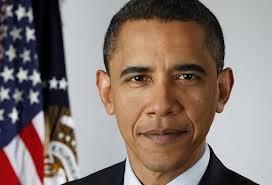 I can understand the top 1%. They are voting for what best represents their interest and most people will do that. It is a rare individual who will put his/her country first and vote for the other guy because, in their heart, they know this country (and maybe the world) needs such a candidate. I want to declare my admiration for those 1%-ers who vote for President Obama.
I can understand the top 1%. They are voting for what best represents their interest and most people will do that. It is a rare individual who will put his/her country first and vote for the other guy because, in their heart, they know this country (and maybe the world) needs such a candidate. I want to declare my admiration for those 1%-ers who vote for President Obama.
But beyond the 1%, I am somewhat mystified why the choice isn’t clear. Mitt Romney is a proud Republican, so is Paul Ryan. They were members of a government that sent this country into massive debt and economic hemorrhage. That they have the audacity to use statistics on President Obama’s first day in office as a mark of measurement for the President is incredulous. That they don’t see it as a mark of shame is scary. That the media and social commentators aren’t calling them out for this is either pathetic or really scary.
The suggestion that eight years of Republican greed and irresponsibility can be fixed in a day, a week, or a month, is stupid and insulting to the intelligence of the populace. That it has taken four years to stop the hemorrhage and institute a measure of stability is an illustration of the gravity of Republican mis-governance.
Barack Obama not only saved the car industry, but also galvanized it to enter the 21st Century and compete with Toyota and Honda. This must be a model for how we govern. He is bringing us out of two wars that are financially bankrupting us, and laying the foundation for new financial and economic sustainability that will be appreciated by our children if not us. More than anything else: we owe it to our children to repair the damage. Let the sins of the fathers (and mothers), stay with the fathers.
Some are frustrated at the pace, at the emphasis, or the inability to create comprehensive policy in, for example, health care. But huge steps have been taken. If you are on the left and even contemplating not voting, or casting your vote for a candidate who, while genuine in their beliefs, are irrelevant to what we, the American people, have deemed a two-horse race, then you are not taking responsibility.
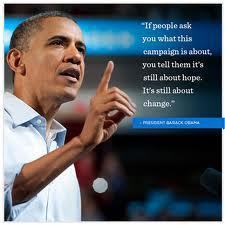 I am frustrated at the Obama campaign for not speaking out consistently at Governor Romney’s inability to provide a clear and understandable policy. His running mate, the ‘numbers man,’ has consistently and condescendingly told us that he has crunched the numbers but can’t share them with us because they are too complicated and time-consuming.
I am frustrated at the Obama campaign for not speaking out consistently at Governor Romney’s inability to provide a clear and understandable policy. His running mate, the ‘numbers man,’ has consistently and condescendingly told us that he has crunched the numbers but can’t share them with us because they are too complicated and time-consuming.
Mr. Ryan – the voter is your consumer and your boss. You owe us an explanation in a language we understand or you run the risk that either: WE DON’T BELIEVE YOU or WE THINK YOU ARE HIDING THE TRUTH – or possibly both.
Four More Years – in a world of instant gratification, this has almost become a curse. But the American people, fueled by Republican greed and public apathy, have allowed us to dig ourselves a deep hole. It is going to take time to fill the hole and cement a firm foundation.
Barack Obama has taken on this responsibility. His campaign would have been more effective if he had played the sugar daddy and promised to wave his magic wand and deliver vague and impossible dreams. But he is too principled for that – a rare trait in politics.
The reality is that we need four more years to continue the recovery and repair the damage. We probably need more than that, in truth, but we need to embrace consistency, rather than chase the magic bullet.
President Obama hasn’t been perfect, but he took office in a deep depression and he has remained a consistent and responsible leader. He deserves the opportunity to continue advancing everything he has built and he needs us to be honest partners, not only today, but for the next four years.
Tomorrow, he needs your endorsement. Your country needs you – GO VOTE!
——————————————————————————————————
Alon Shalev is the author of The Accidental Activist and A Gardener’s Tale. He is the Executive Director of the San Francisco Hillel Jewish Student Center, a non-profit that provides spiritual and social justice opportunities to Jewish students in the Bay Area. More on Alon Shalev at http://www.alonshalev.com and on Twitter (@alonshalevsf).

November 2, 2012
National Novel Writing Month
It was early November and I went to the coffee shop in a Borders (RIP) to write. I immediately saw that something was different. During the week, the tables were usually occupied by nursing students with huge, backbreaking text books and blank facial expressions.
This Saturday, it was a different crowd and I could feel the silent tension screaming. Half the tables were occupied by writers (don’t ask me how I know), but when I took out my laptop to write, one leaned over and asked, her tone conspiratorial: “How many words so far?”
I glanced at the novel that I wasn’t far off completing and told her that I was at 72,000 words. She stared at me. I didn’t understand it then. I do now.
 National Novel Writing Month is: “a fun, seat-of-your-pants approach to novel-writing. Participants begin writing on November 1. The goal is to write a 50,000-word (approximately 175-page) novel by 11:59:59 PM on November 30.”
National Novel Writing Month is: “a fun, seat-of-your-pants approach to novel-writing. Participants begin writing on November 1. The goal is to write a 50,000-word (approximately 175-page) novel by 11:59:59 PM on November 30.”
I have never felt the need to participate. It seems to me that this challenge is for those who need the adrenaline rush and/or discipline demanded from ‘NaNoWriMo’. I am blessed (or cursed if you ask Mrs. Left Coast Voices) with the ability to sit anytime, anywhere and write. I write my 90-100,000 word novels in four months. I work, sleep and write.
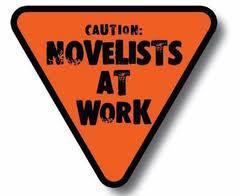 Valuing enthusiasm and perseverance over painstaking craft, NaNoWriMo is a novel-writing program for everyone who has thought fleetingly about writing a novel but has been scared away by the time and effort involved.
Valuing enthusiasm and perseverance over painstaking craft, NaNoWriMo is a novel-writing program for everyone who has thought fleetingly about writing a novel but has been scared away by the time and effort involved.
But for those who don’t howl at the full moon, this sounds like an amazing opportunity and I think I am somewhat jealous of the camaraderie that develops for those people who congregate in sacred and frantic silence.
“Wrimos meet throughout the month to offer encouragement, commiseration, and—when the thing is done—the kind of raucous celebrations that tend to frighten animals and small children.
In 2011, we had 256,618 participants and 36,843 of them crossed the 50K finish line by the midnight deadline, entering into the annals of NaNoWriMo superstardom forever. They started the month as auto mechanics, out-of-work actors, and middle school English teachers. They walked away novelists.”
Good luck, NaNoWriMos’ May the Muse be with you.
——————————————————————————————————
Alon Shalev is the author of The Accidental Activist and A Gardener’s Tale. He is the Executive Director of the San Francisco Hillel Jewish Student Center, a non-profit that provides spiritual and social justice opportunities to Jewish students in the Bay Area. More on Alon Shalev at http://www.alonshalev.com and on Twitter (@alonshalevsf).


